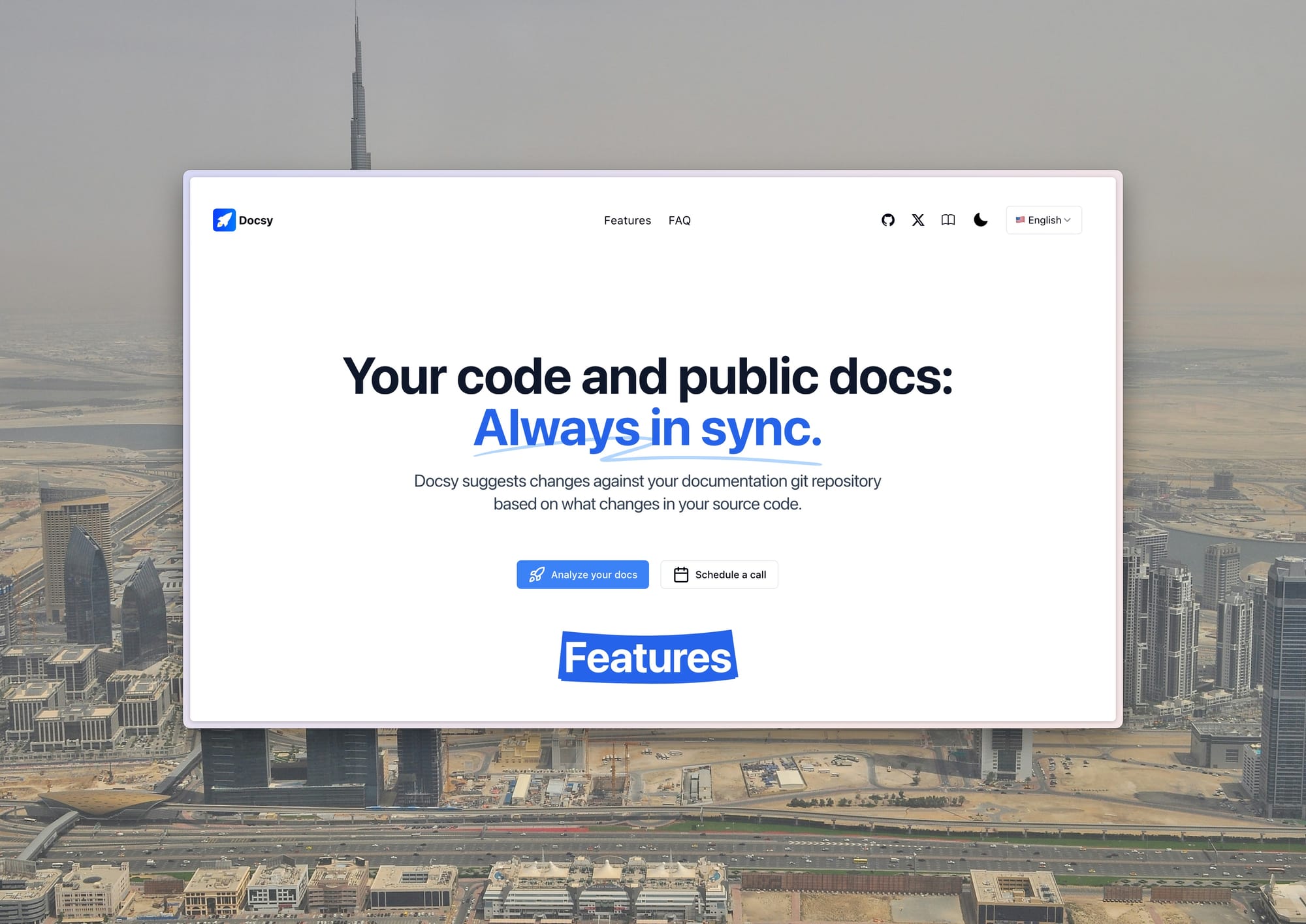Building Docsy - November Review
I quit my full time job end of October to build a company. Here is how it's going after one month.

After working on Docsy over the summer next to my full-time job, I quit my full-time job end of October to focus on Docsy. Here is how it's going.
Revenue per month: 0€
Docs contributions per month w/o dogfooding: 0
What I did
- I published a landing page.
- I published two blog posts. I didn't write them specifically for Docsy, but I included links to the landing page, so I'll include them here:
- ~50 visitors each from posting on hackernews; no follow-ups
- ~10 visitors each from posting on Linked In; no follow-ups
- I published a website that analyses documentation repositories
- 14 visitors from a Linked In in posts; 1 tried it out; no follow-ups
- 67 visitors from a hacker news comment; 2 tried it out; no follow-ups
- I built a demoable pull request review feature.
- I asked on LinkedIn for product managers who would be up for an interview and interviewed 3.
- I joined Write The Docs, a community of technical writers. I jumped into one or two discussions there but mostly kept reading and learning.
- I read Startup Recht and The Mom Test.
- I visited two startup hubs.
What I learned
- Teams find it hard to come up with and adhere to a good documentation structure for their product. This came up in all interviews and a few times online (and why Diataxis was on the front page of HN). This is where the website I built this month fits into the picture: the model I started developing is a starting point for measuring how changes improve or worsen documentation structure.
- The problem I am working on is most pronounced for technical products with a big scope. This is mostly platform products, since they are used to built stuff on top by technical folks. (I talked to a product manager from a company that has many big company clients, but the customers are never visiting docs, just using the platform and contacting support directly if they get stuck.)
- Technical writing is something companies pay for and fail to solve. I met two products that hired a technical writer but didn't keep them on the team because it was seen as too much overhead to give them the context they needed to become effective.
- AI is getting a lot of attention in technical writing: conference talks, blog posts, community questions; it's everywhere.
- A couple of folks are working in the same directions that are already visible online, both here in Europe and in Silicon Valley. They started in 2023 or early 2024.
- I learned a lot of details of German law that are applicable to start-ups from the Startup Recht book I linked in the first section.
How I feel
Before I did todays write up I felt like I didn't achieve much last month. After all, the most important numbers (revenue and documentation contributions) are both zero. After the write up, I do feel a bit better: I became visible online (landing page with analytics; posting on linkedin), tested assumptions in interviews and online, and started to ship code that I can build upon.
Finding out about competition in the field was an interesting experience. When I find a new competitor, I start out with a fear of "they have already solved everything, I can pack in". I look into what they have and what quality it is and calm down a bit; no magic there. Then I realize they are not going at it the way I am and are missing—what I consider—important bits and I think what I am building will be a lot better. I am very competitive in sports, so I know myself being competitive, but so far business wasn't a domain I was feeling this much. As an employee, I mostly focused on what was going on inside the company and how to improve execution. Now, with everything in my hands, the market landscape is naturally more important to what I do.
The Startup Recht book was very valuable, much more than I expected. I couldn't put the book back down once I started it because it took away so much uncertainty I had around the process and the decisions involved. The book gives a thorough overview and lot's of checklists I will return to when going through the process of registering my first company. I know I will always be able to involve specialists, but having a solid overview feels so good.
What's next
For December, I want to demo Docsy's pull request review workflow to 3 companies and run a trial with one company.
I am looking into doing a meetup about documentation in Frankfurt. I never orgainzed a meetup, so I will need to do some homework on that. Goal for December is to come up with a date and location that I can advertise.
